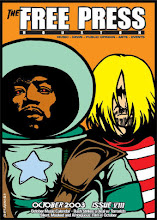The International

The International plays the political thriller genre full on with occasional tributes to 70s paranoia flicks like The Parallax View. Fiercely directed by Tom Tykwer, himself an international director having helmed everything from Run, Lola, Run to the Kieslowski scripted Heaven to the criminally underrated Perfume: Story of a Murder, which incidentally was huge worldwide but barely released stateside, the tight procedural outline lets you know it's serious. This isn't a film where the stars, Naomi Watts and Clive Owen, are going to fall in love while globetrotting to investigate corporate malfeasance.
The International revolves around a particular bank entity that brokers arms between warring countries. Owen, an Interpol agent formerly with The Yard and ousted when his investigation into the bank came too close to exposing them, works with Watts, herself with the New York City district attorney's office and who has the American branch of said bank under surveillance for suspicion of fraud. The events transpire in a very conspiratorial manner. Moments after getting a bank officer to spill the beans Owen's contact has a heart attack. Moments after revealing the bank's nefarious motive a politician becomes assassination bait. This scene generates plenty of visual interest with tense establishing shots and the action being covered on any number of video feeds. A subsequent sequence with Watts and Owen using rudimentary skills to determine that there were in fact two shooters will appeal to fans of forensic evidence.
The structure Tykwer uses demands that the big finish is revealed quite early. We know who's responsible and what the conspiracy entrails. From the beginning to the end we follow Owen getting the hard copy facts he needs to bring down the whole affair. The International also lives up to its title by having as many locations as a Bond film. We are in rural Italian lake resorts as well as major cities from Gotham to Istanbul. In what has to be one of the coolest set pieces in a movie ever The International stages a massive shootout in New York's Guggenheim Museum with so much ammunition, good continuity and mayhem that no action fan will be disappointed. This explosive sequence plays as a counterpoint to the end of the film with its contemplative and bleak perspective of world economics.









